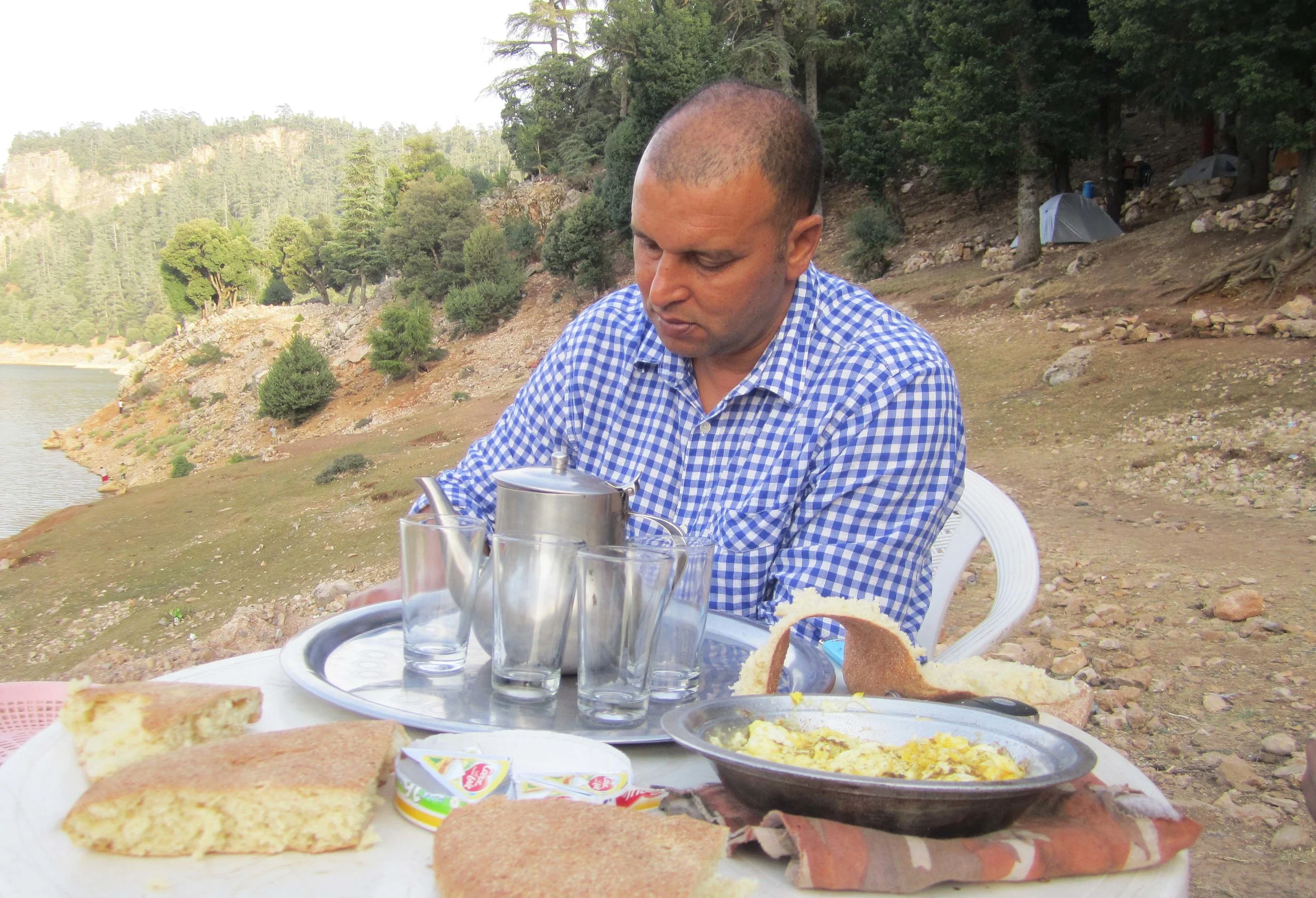Interview with Mo - Maroc Tribal's owner
A little while ago I was delighted to be able to showcase our carpets on the design portal; Design Addict - a meeting place for 20th century design. At the time they interviewed me for their "personalities" blog to discover more about Maroc Tribal, how we source carpets and about our interests!
This carpet sourcing trip starting with a bit of 'luxury!' Breakfast by my tent before the day gets going
What brought you to vintage design?
I started Maroc Tribal 10 years ago when I was travelling in Berber villages in Morocco. I’m Moroccan and I'm Berber, and I was exploring Berber culture. Since then we’ve built a reputation for our personal sourcing of hand woven vintage Moroccan carpets, rugs, tent cushions and textiles, buying direct from families: getting hold of unusual pieces. Classical modern architects such as Le Corbusier, Alvar Aalto or Marcel Breuer started to appreciate Moroccan Berber carpets in about the 1920s and 30s, attracted to their minimalist, bold and abstract forms. They were displayed in the homes of collectors and design enthusiasts across Europe and North America, often championed by French collectors. I think that I was initially attracted to them for some of those same reasons, such as a rejection of figurative representation, bold colours and shapes, and an authentic spirituality
Alvar Aalto's house, with Moroccan Beni Ouarain carpts
If you could only save one item from your personal collection, which one would it be?
I collect carpets and textiles from the Ait Bou Ichaouen tribe. These rugs were made in the east side of the Atlas mountains, over near the border with Algeria. This tribe lived in isolated lands, which had few natural resources and thus the Ait Bou Ichaouen rarely wove for the market and their isolation became their biggest strength; leading to unique creativity. So for me it would be a rare and beautiful piece from this tribe, dating back to the late 1950s
A rare Maroc Tribal Ait Bou Ichaouen carpet
What's been the best decision you've made in your life so far?
To learn different languages. I spoke Arabic and Berber from childhood, received my education in French and learnt Spanish, Italian and English living in in those countries. That’s connected me to an interesting European-wide as well as global community of designers and collectors, and helped me to understand different people and perspectives. Most of our clients are based in Europe, the US or Canada, and we're based in London, and I love the free movement of design, people, ideas and objects across many borders
Is there an item that you regret having sold, that you would have wanted to keep?
Yes, lots. When I first started Maroc Tribal, during those first years I managed to find a number of very big, very old Beni Ouarain rugs - the distinctive large white-ground pile Berber carpets with black or brown designs. Beni Ouarain weavers produced rugs and other textiles for protection against harsh winters in the highland areas. I wish I still had those pieces, as I now find it hard to get hold of original pre 1950s ‘Beni Ouarains.’ There are a lot of copies, passed off as vintage. I do source contemporary and bespoke Beni Ouarain rugs but make sure I describe them accurately. Recently I’ve been sourcing bigger, new Beni Ouarain carpets as there’s a lot of demand for them from clients who have big modern spaces to fill
A vintage Maroc Tribal Beni Ouarain carpet




